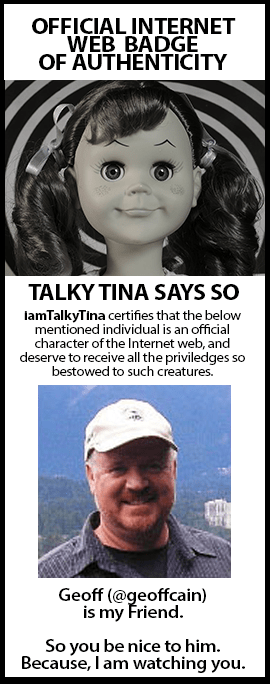Michael Dabrowski from Athabasca University presented on using open pedagogy to have students create assignments. This was a good workshop because he gave a lot of actual applications of open pedagogy from his classroom. According to the schedule:
Attendees will see how to apply engaging open practices to improve learning and accelerate OER development. They will explore a model of student-driven interdisciplinary content learning through teaching and development of educational materials.
Tapping into the talent pool of undergraduate language students, we adopted Open Educational Practices (OEP) incorporating reusable or meaningful open assignments (Wiley, 2013) as the core curriculum for a language course. The reusable assignments allow students to perfect the living text through various collaborative editorial and pedagogical practices (Paoletti, 1995) focusing on vocabulary, grammar, and structure. In addition, the students create, edit and design ancillary learning materials under Creative Commons licenses with the objective of producing a meaningful stand-alone open educational resource for future iterations while exploring socially relevant topics.
The course activities enhanced scholarship and empowered the learner to leverage collaborative digital technologies, perfect language skills by teaching their peers, and have their course-work impact the world in a socially meaningful way by contributing to the open movement. This work embodying collaborative learning practices (Dillenbourg, 1999), in stark contrast to the competitive nature of our current educational system, offers the opportunity to extend open content creation to a much larger community while at the same time promoting a practice that allows the learner to participate actively in and contribute to the subject matter that they are studying.
Participants will be encouraged to engage via suggestions and open discussion throughout the presentation. A couple online polls will be used to capture participant opinions at various stages, and small group discussions will be used towards the end to share insights and ideas. Lastly, since this open resource is under continual development, an open invitation to future collaboration will be proposed to interested participants.
________________________________________________________
He flipped the classroom where the students were teaching and he was facilitating.
- Build strong teacher-student collaborative relationship of inquiry
- Active engagement of cognitive strategies
- Crowd-sourcing the textbook
Unexpectedly diverse student population.
Students helping students: legacy speakers had exceptional ability and the Spanish students were reluctant to speak Spanish. There were opportunities for the students to learn from one another based on the diversity of the class.
The students went through the text and submitted glossary items, short textual questions, and the discussion questions.
They went beyond generating content to be graded but work that had value to themselves and future students.
They were using the glossary in Moodle.
He wanted to include UN sustainable goals, social awareness, global awareness, self reflection and global awareness, and language skills.
Risks with student authors: past trauma, marginalized groups, focusing on issues, not solutions, and privacy.
OERs are never finished, just continuously improved. There are millions of potential collaborators if you ask.




